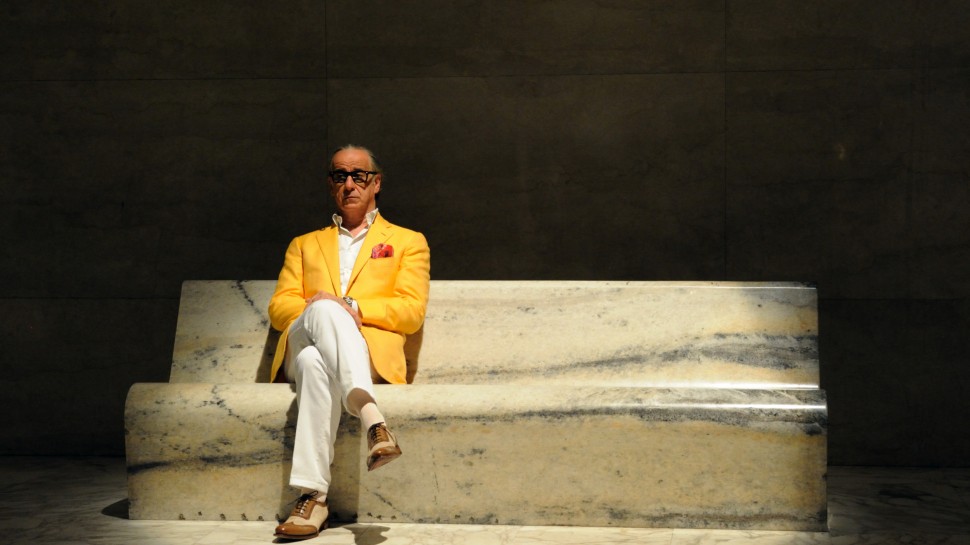


Carpe Noctum. The Satiric Gaze of Paolo Sorrentino
From the mid-Fifties into the early Seventies, Italian cinema enjoyed an extraordinary moment in which overtly political and vanguard filmmaking—by the likes of Marco Bellocchio, Pietro Germi and Elio Petri—found a lasting popularity and success that has since lingered only as a bittersweet memory. Celebrated screenwriter-director Paolo Sorrentino (b. 1970) has proven himself an important exception through a series of stylistically audacious, vociferously outspoken and acclaimed films that have reignited the earlier promise of Italian cinema by using dark satire to define a contemporary and popular mode of political cinema. Sorrentino’s breakthrough came with the critical and commercial success of Il Divo, an engrossing “rock opera” biopic of the controversial, autocratic, longtime Prime Minister Giulio Andreotti that defined the blend of cutting satire, astute critique and baroque style that would carry across his subsequent films. Prying open the cluttered Pandora’s box of dark rumors, urban lore and acknowledged facts about the rampant corruption and murderous underworld intrigue that made possible Andreotti’s frighteningly long reign, Il Divo also put Andreotti himself on the couch by proposing a very plausible reading of the enigmatic politician’s inner motivations and, intriguingly, his possible feelings of remorse. Sorrentino’s follow up film, La grande bellezza, delivered a broader kind of political satire with an acerbic portrait of the dolce vita brand of high-cultured hedonism and cynical complacency that partially enabled the rise of the ultimate hedonist, the gleefully corrupt Silvio Berlusconi. The decadent, debauched circus surrounding Berlusconi would then become the subject of Sorrentino’s next major political film, the two-part Loro, a savage but strangely sympathetic study of the self-serving sycophants who continue, to this day, to feed Berlusconi’s voracious ego while papering over his every blatant offense. For American audiences, Sorrentino’s sharp-edged epic bacchanalia cannot help but read as a dark prediction of what will come if the small-handed, sticky-fingered petty dictator Donald Trump is re-elected.
A showcase of Paolo Sorrentino’s dazzlingly cinematic and outspoken political films, this series also includes the filmmaker’s three earliest and rarely screened works, each portraits of paranoid and delusional men who, in the filmmaker’s hands, remain fascinating and strangely vulnerable, trapped on ethically slippery slopes of their own design, yet longing to be elsewhere. The indelible presence of the chameleon-like actor and fellow Neapolitan Toni Servillo—in the leading role of all the major films—gives important continuity to Sorrentino’s project while also suggesting the performative hunger shared by his characters to be a primal driving force of all those intoxicated with that rarest of aphrodisiacs, power. – HG
The Harvard Film Archive proudly welcomes Paolo Sorrentino for a screening and discussion of his now-iconic film, La grande bellezza. Sorrentino also comes to Harvard to discuss his work on film, and more recently, television with a class on satire being taught in the Harvard College Program in General Education by Ambrogio Camozzi Pistoja, Assistant Professor in Romance Languages and Literatures.















